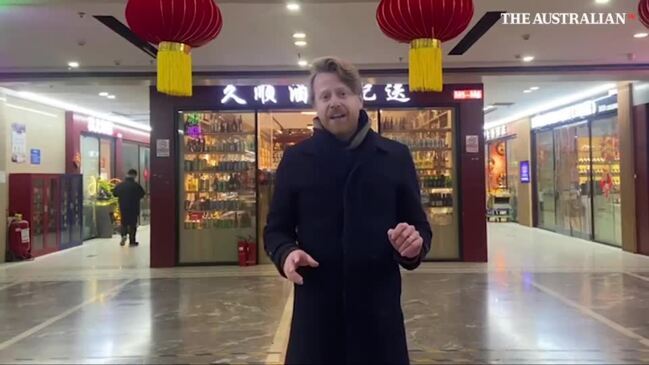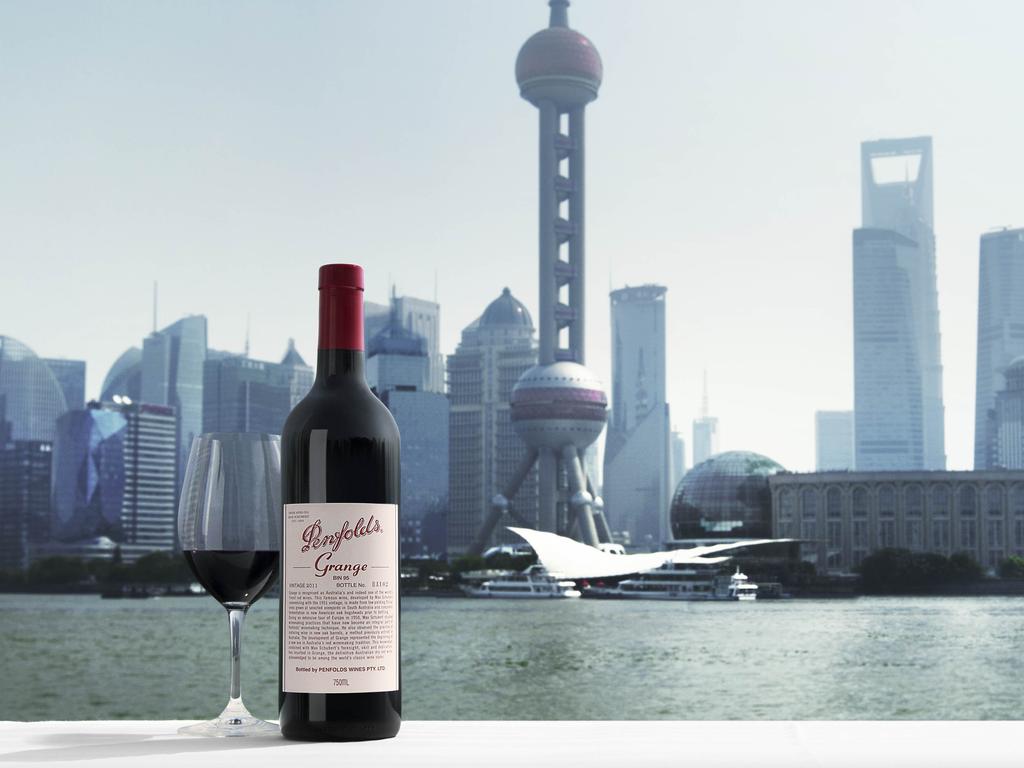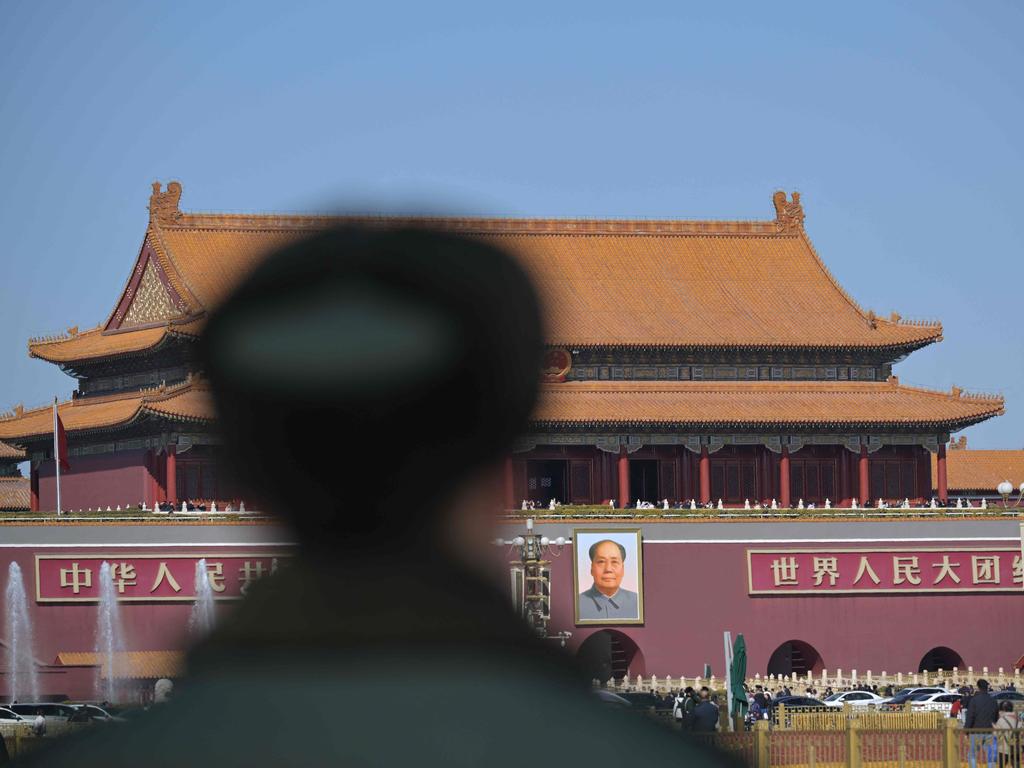Australian wine back on the menu after China ends crippling tariffs
The biggest export market for winemakers is again open for business after Beijing announced an end to its politically motivated tariffs that all but wiped out a $1.2bn market.

Australian wine will retake its place among Chinese supermarkets, restaurant wine lists and banquet tables after Beijing announced the end of crippling tariffs that should see China return to being the Australian wine industry’s biggest export market.
Late on Thursday afternoon, just before the Easter break, China’s Ministry of Commerce announced the end of the politically-motivated tariffs that had all but wiped out what was once a $1.2bn export trade for Australia.
“The Ministry of Commerce ruled that in view of the changes in the relevant wine market conditions in China, it is no longer necessary to impose anti-dumping duties and countervailing duties on imported relevant wines originating in Australia,” the Ministry of Commerce said in a statement.
The Beijing ministry said the tariffs would be lifted on March 29, Good Friday.
Anthony Albanese welcomed Beijing’s decision, which he said came “at a critical time for the Australian wine industry”.
“This outcome affirms the calm and consistent approach taken by the Albanese Labor government and follows the success of the similar approach taken to remove duties on Australian barley,” the Prime Minister said, in a joint statement with Foreign Minister Penny Wong, Trade Minister Don Farrell and Agriculture Minister Murray Watt.
Although Australian winemakers remain cautious about re-entering the Chinese market, with many caught out by the imposition of the whopping tariffs almost four years ago that destroyed their business in the Asian giant, there will be celebrations in the $45bn wine sector as a once billion-dollar market is back open for business.
Ending the tariffs has been a top priority for the Albanese government, which agreed to halt a WTO case against China’s impost in an attempt to quicken the return of Australia’s trade. That face-saving arrangement for China was made to create an off-ramp for the nearly 200 per cent tariffs that were imposed by Beijing in November 2020 as one of the centrepieces of its sweeping trade coercion campaign against the Morrison government.
Mr Albanese said Australia would end those WTO proceedings now that Beijing had agreed to lift the duties.
The boss of Accolade Wines, Robert Foye, who oversees one of Australia’s biggest winemakers and which owns brands such as Hardys, St Hallett and Petaluma, said the news was positive for his business and for the whole Australian wine industry.
“While we do not anticipate a snapback to 2020 levels, we do see a sizeable opportunity for our business in China and we are excited about the long-term potential this market brings,” Mr Foye said.
“I was in China last week meeting with our key customers and distributors including at the Food & Drinks Fair in Chengdu and I can say there is genuine excitement about bringing Accolade’s portfolio of exceptional Australian wines back to the Chinese consumer.
“We know that Australian wine has a well-deserved reputation for quality in China, and that includes a number of our leading brands such as Hardys and Grant Burge, and we look forward to building on this now that the tariffs have been lifted.”
The tariffs decimated Australia’s wine trade to China, leaving the market open to competitors from France, Chile, Italy and Spain, and forcing many Australian winemakers to suddenly diversify from their largest export market.
It also left many Australian winemakers with excess stock, with many seeking alternative markets in South Korea, Taiwan and Japan. Some of the high-end trade continued through Hong Kong where the Chinese tariffs did not apply, facilitating a thriving black market trade into the mainland.
While the removal of tariffs is expected to make China again the top market for Australian wine exporters, many are not expecting the pre-Covid era “gold rush” to return.
China’s wine consumption has been in structural decline since before the pandemic, as consumer confidence has slumped. Also Xi Jinping has overseen a crackdown on banquet culture and many foreign luxury goods have been replaced by local alternatives. Last year, China imported only $1.6bn of wine – down more than 60 per cent from its peak of $4.28bn in 2018.
Experts say Australian producers will struggle to recapture even half of their peak of $1.2bn. But even a third of that pre-tariff level – worth about $400m – would once again make China the biggest customer for Australia’s wine industry, overtaking the US and the UK, our current two biggest markets.
That level would also likely see Australia overtake France again and become China’s biggest supplier of wine.
Chinese wine importers say the popularity of Australian wine remains among local drinkers. “It will take two or three years, but Australian wine will get back on top,” one Beijing wine wholesaler told The Australian.
In early March the ASX-listed Treasury Wine Estates, whose labels include Penfolds, Wolf Blass and Pepperjack, and which had a hugely successful and lucrative wine export trade into China, said it had been advised by the Chinese Ministry of Commerce of a draft determination to drop tariffs on Australian wine. At the time Treasury Wine said it expected that a final determination would be issued regarding tariffs on Australian wine imports by the end of the month.
On Thursday evening, Treasury’s CEO Tim Ford welcomed the news from Beijing as a “significant positive” for his company, the Australian wine industry and Chinese wine consumers.
“Since the tariffs were introduced three and a half years ago, our commitment to China has been resolute, and we now look forward to partnering with our local customers to re-establish our Australian COO portfolio in the market while continuing to be a meaningful contributor to the development and growth of the Chinese wine industry,” Mr Ford said.
“This is a medium-term growth opportunity that we will pursue in a deliberate and sustainable manner, focused on growing our portfolio in China while continuing the strong momentum that we have delivered in several global markets over recent years,” he said.
Treasury shares were up 2 per cent in anticipation of the news, trading at nearly their highest level in 10 months.
Mr Ford told investors at the company’s half-yearly results in February that the winemaker was holding back some supplies to be ready to re-enter the China market with Australian wine if the tariffs were lifted. The company has also maintained a staff in China of some 100 to maintain its exposure to the market in the hope that tariffs would be lifted.

Over the last two years, Beijing has unwound most of its trade blockages, which at their peak ran to $20bn a year.
The end of the wine tariffs leave Australia’s live lobster trade and more than half a dozen beef abattoirs as the two remaining products black-listed by Beijing.
In his Thursday evening statement, Mr Albanese and his ministers thanked Australian grape growers and wine producers “for their fortitude and support during a challenging period”.
“We will continue to press for all remaining trade impediments affecting Australian exports to be removed, which is in the interests of both Australia and China,” Mr Albanese said.
“Trade diversification is a key element of the government’s trade policy strategy. The government will continue to support Australian businesses to sell their world-class products on the global stage.”







To join the conversation, please log in. Don't have an account? Register
Join the conversation, you are commenting as Logout